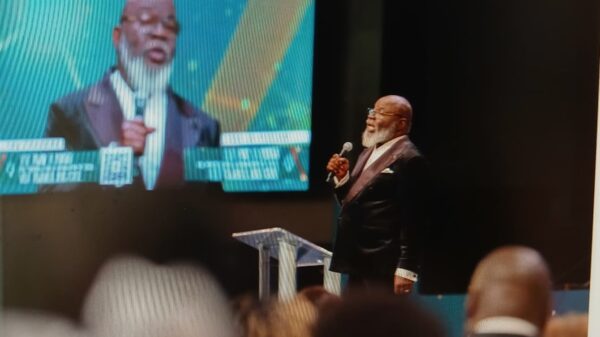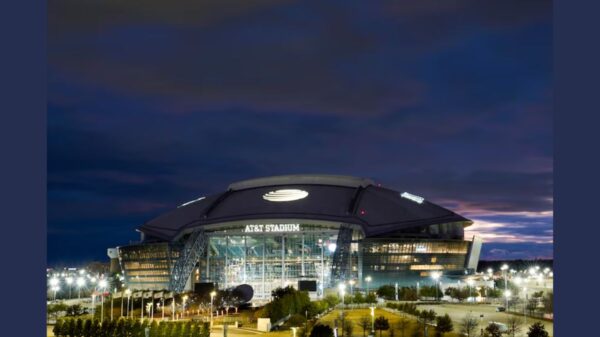
By Dave Lieber
You name a new school building after a man or woman, and decades later few remember who that person was. In the case of the late George Dawson of Dallas — he of George Dawson Middle School fame in Southlake’s Carroll ISD — the reason his name is on a school is something of a miracle.
Yet now we learn from Dallas Morning News Education Lab reporter Meghan Mangrum that a committee of district educators reviewed Dawson’s book to check for, in the words of Superintendent Lane Ledbetter, “age and content appropriateness for students.”
Students can still read most of the book. But for seventh graders any discussion of the most important chapter must instead be overseen by a teacher as part of a guided discussion. To me, it sounds like the book’s key chapter might not get read at all, but instead be summarized by the teacher.
Critics call this a book ban. The Carroll district, already suffering image-wise from a slew of battles over race relations in its schools, fights this labeling. I’d say it’s more of a book censoring than a banning. Is there a difference? I’m not sure.
This has not come up in the first 20 years Dawson’s name has been on that building.
Yet this is what can happen when school districts get politicized. Suddenly, the idea of nonpartisan elected school boards, in place for several decades in Texas, doesn’t look so bad.
Good books — no, make that great books — can get caught in the crossfire.
It’s a remarkably embarrassing situation for one of the state’s premier school districts. If ever a book’s story needs to be told, it’s this — Life Is So Good, by George Dawson and Richard Glaubman.
Literacy symbol
I never met George Dawson, but I studied his life on the day he was buried in July 2001 by reading his book. And it’s a most remarkable book.
Almost as compelling is how his name ended up on that school building the same year he died even though he had no connection to the Southlake school.
In summary, he was the grandson of a former slave who learned to read at age 98.
The Dallas man became a symbol of literacy worldwide, appearing on Oprah Winfrey’s show, and being profiled in newspapers and magazines. He lived to 103, long enough to know that his name was on a building. And yes, he could read it.
What follows is the specific story that some Carroll leaders believe is inappropriate for 12-year-olds. You can decide.
Life story
George Dawson grew up in Marshall in East Texas. For Blacks like him, freedom was a relative thing.
The boy in town he most looked up to was a friend named Pete, one of the finest baseball players in East Texas. Pete once gave George the ball from Pete’s game-winning hit with the advice: “You practice with it, George. You’ll be a hitter someday, too.”
George wrote in his book that it was his most cherished possession.
When George was 10, he was downtown in Marshall with his father when Pete was accused of getting a white woman pregnant.
“It wasn’t me!” Pete screamed as a mob encircled him. “I didn’t touch her! Lord, let me go!”
The true story is that the woman became pregnant with her white boyfriend, and the baby’s birth months later would prove that. But to avoid the wrath of her father, she blamed Pete.
Up by the post office there was an old oak tree called the Confederate Tree. The sheriff stopped by, but he didn’t interfere.
“Get that boy up there,” somebody shouted.
As the lynching took place, George buried his head against his father’s chest. Pete’s neck broke instantly.
“His eyes were open,” George writes. “Pete was still looking at me, and I knew that he always would be.”
That story hurts, and the pain is what helps us learn. Still, for some, this is a no go.
No schooling
George didn’t go to school. He worked on the family farm. “By 16, my time for school had passed.”
With his free time, he played baseball for Marshall’s Black team, but on road trips the team couldn’t get served in restaurants or use bathrooms in service stations.
As a young man, he built levees on the Mississippi River and laid railroad tracks. He saved enough money to visit Canada and Mexico and was surprised to see no racial segregation. He ate in any restaurant he wished, and rode in any part of the train, not just the last car.
Back home in Texas, he worked as a cowboy breaking in horses. He worked for years at a Dallas dairy and then on a Dallas city road crew.
In all these jobs, he could never read.
But at age 98 he took up learning and co-wrote his life story.
So what’s the problem? It boils down to this: In Carroll, stories about lynchings, rape and racial slurs are not appropriate for seventh graders without a teacher doing heavy supervision. It might be too much for the kids. Or not.
Naming the school
Here’s the school naming story. Back in 2001 when Southlake was about 95% white, school trustee Jerry Lawrence’s son heard George promote his memoir and was inspired by it.
Because George had no tie to the district, other than a visit he made with students, the school board debated Lawrence’s proposal to name the school. But the measure passed by the slimmest margin on a 4-3 vote.
George’s reaction: “I’m surprised they’d name a school after me. You know, with me being a colored man and all.”
George Dawson’s story should not only be taught to every Dawson Middle School student, but to every student in all Carroll ISD schools. Indeed, it should be taught to every student in the state of Texas as a mandatory part of Texas history.
This besmirches Dawson’s memory. But it reminds us why his name is on that school building. As I said, it’s a miracle.
The only list Life Is So Good should be on is a list of great Texas books.
Leave this book alone.

Become a citizen of Watchdog Nation.
Join Dave Lieber and learn to be a super-consumer.
Watchdog newsletter: Sign up for The Watchdog’s FREE weekly newsletter to keep up: click here.
Subscribe: PLEASE support The Watchdog’s brand of straightforward journalism designed to save you time, money and aggravation. Treat yourself to a digital subscription (and make him look good!) by visiting https://dallasnews.com/subscribe
Watchdog Home Page: You can’t afford to miss The Watchdog’s two reports each week. Follow our latest reporting always at The Watchdog home page which features all recent columns.
Watch this free training video from Dave: https://youtu.be/uhUEUCNKGjc
Facebook: Connect with The Watchdog on our Facebook group. Search for “DallasNews Watchdog Posse.”
The Dallas Morning News Watchdog column is the 2019 winner of the top prize for column writing from the National Society of Newspaper Columnists. The contest judge called his winning entries “models of suspenseful storytelling and public service.”
Read his winning columns:
* Helping a waitress who was harmed by an unscrupulous used car dealer









You must be logged in to post a comment Login